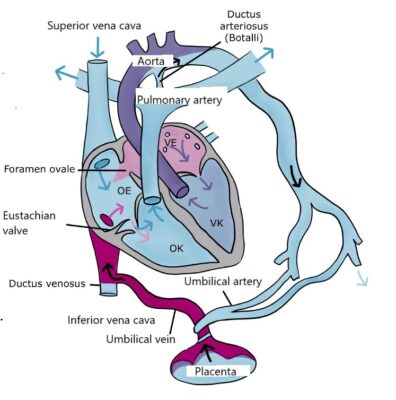Fetal screening tests during pregnancy include ultrasound examinations, blood screenings from the mother, and combinations of these methods. An abnormal screening test result does not necessarily indicate a fetal disease but suggests that further testing is needed. The expectant mother decides whether she wants more detailed fetal tests after receiving sufficient information about them. A normal screening result does not guarantee a healthy child.
In the ultrasound screening, the thickness of the fetal nuchal translucency is measured between the 10th and 12th weeks of pregnancy. Increased nuchal translucency can indicate an increased risk of chromosomal abnormalities in the fetus. While nuchal translucency is usually temporary, in some cases it may increase, potentially leading to miscarriage (regardless of whether the fetus has chromosomal abnormalities or not). Studies have shown that the risk of congenital heart defects is slightly increased when nuchal translucency is detected in early pregnancy. Chromosomal testing is considered if the fetus shows structural abnormalities.
In the so-called blood screening, hormones or proteins derived from the placenta and fetus are measured from a blood sample taken from the mother. The mother’s age affects the risk assessment. Serum screening is more reliable in older mothers than in younger ones.
According to the regulation of the Ministry of Social Affairs and Health (STM), municipalities are required to provide chromosomal screenings and screenings for severe structural abnormalities to all pregnant women. Families decide for themselves whether they wish to participate in these tests (all or some of them). These screenings include a general early pregnancy ultrasound between weeks 10 and 14, chromosomal abnormality screening primarily through combined first-trimester screening (blood screening between weeks 9 and 12 and nuchal translucency measurement during the general ultrasound examination between weeks 11 and 14) or, alternatively, mid-pregnancy serum screening between weeks 15 and 17, and an ultrasound examination for severe structural abnormalities between weeks 18 and 21, or after week 24.